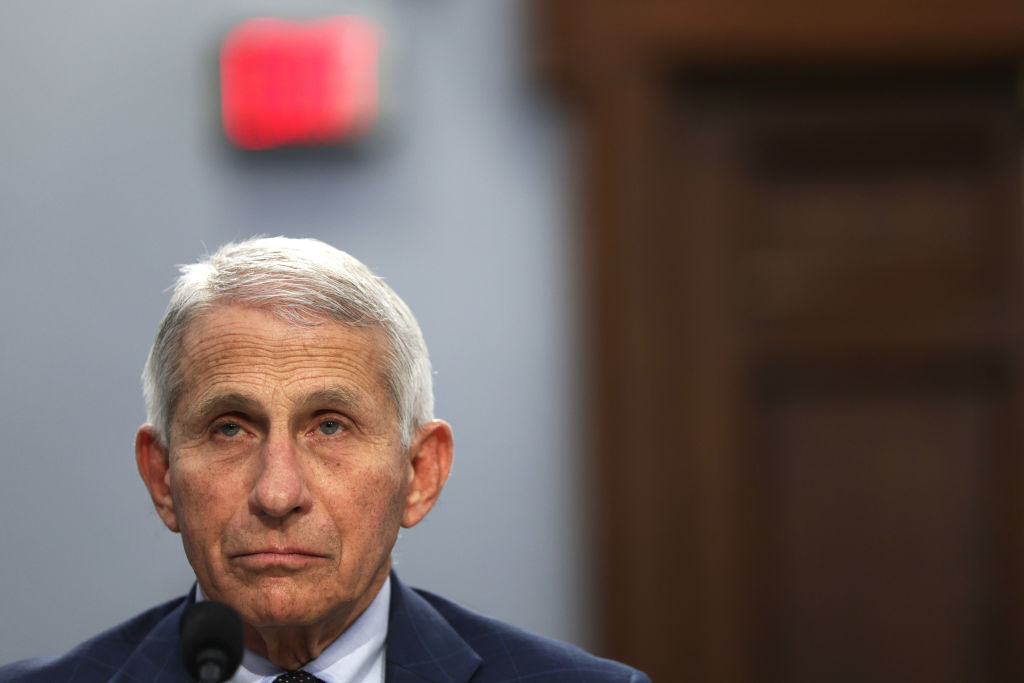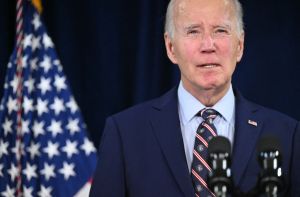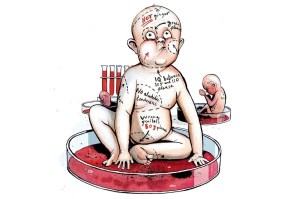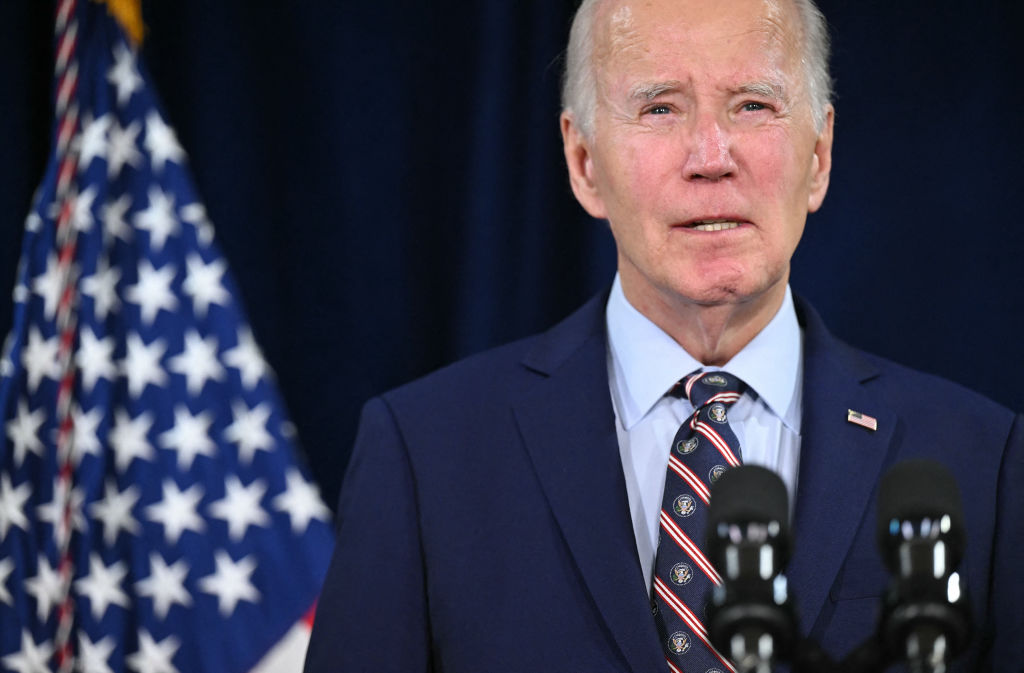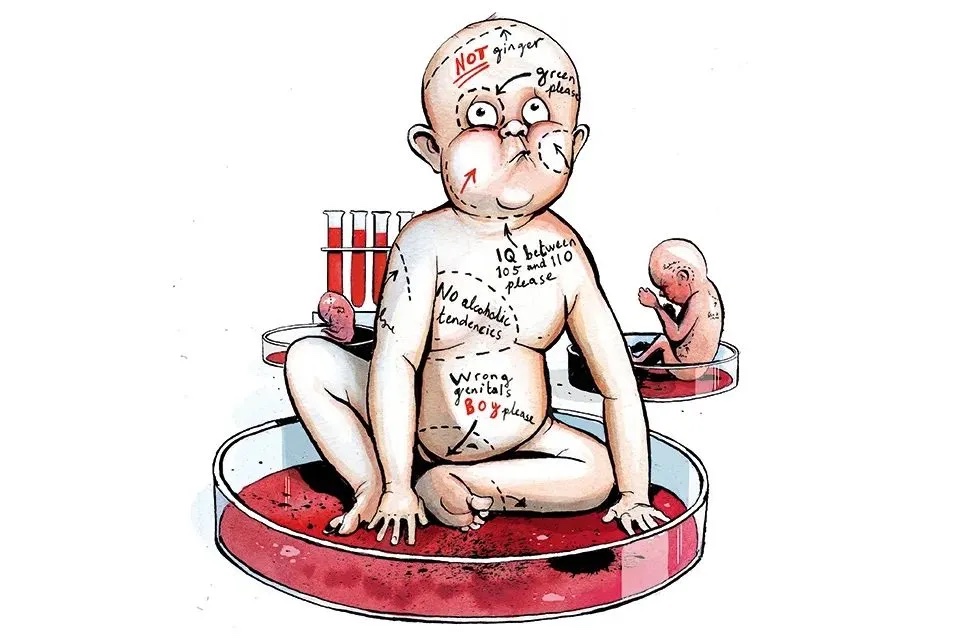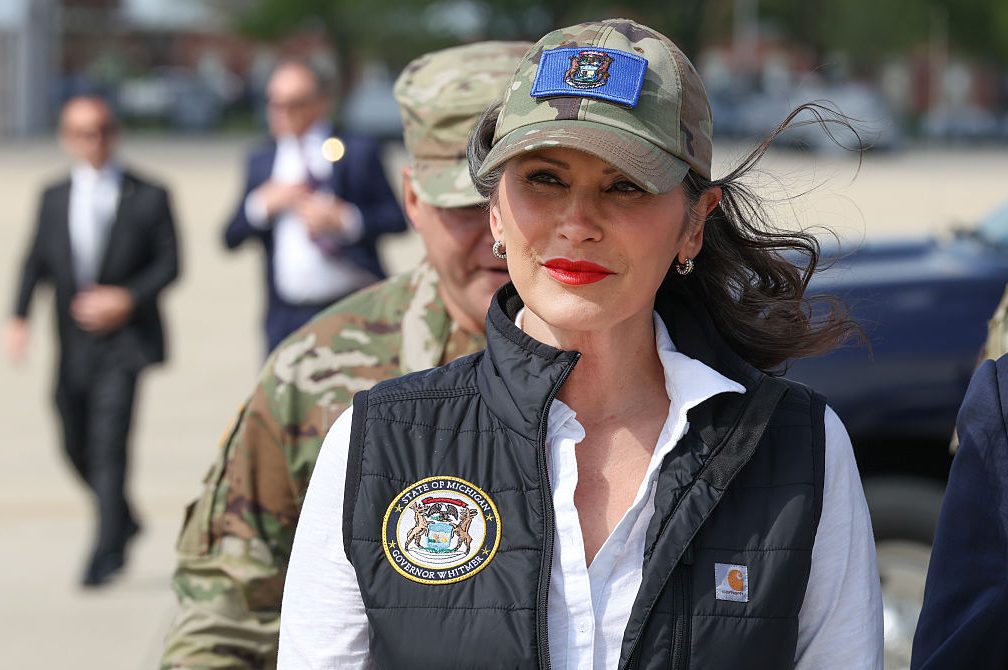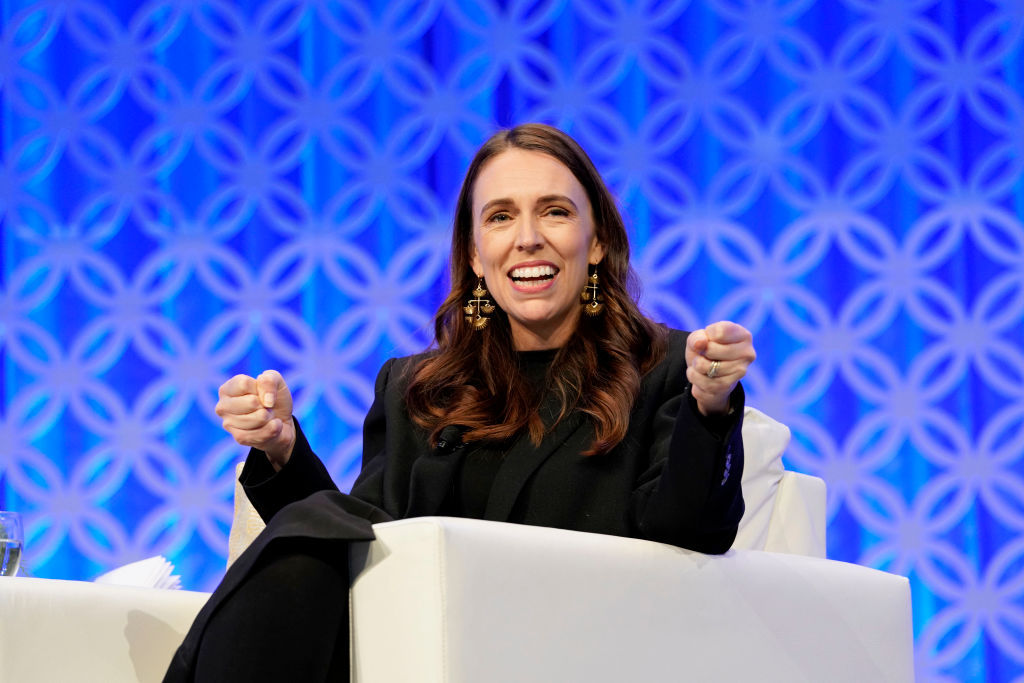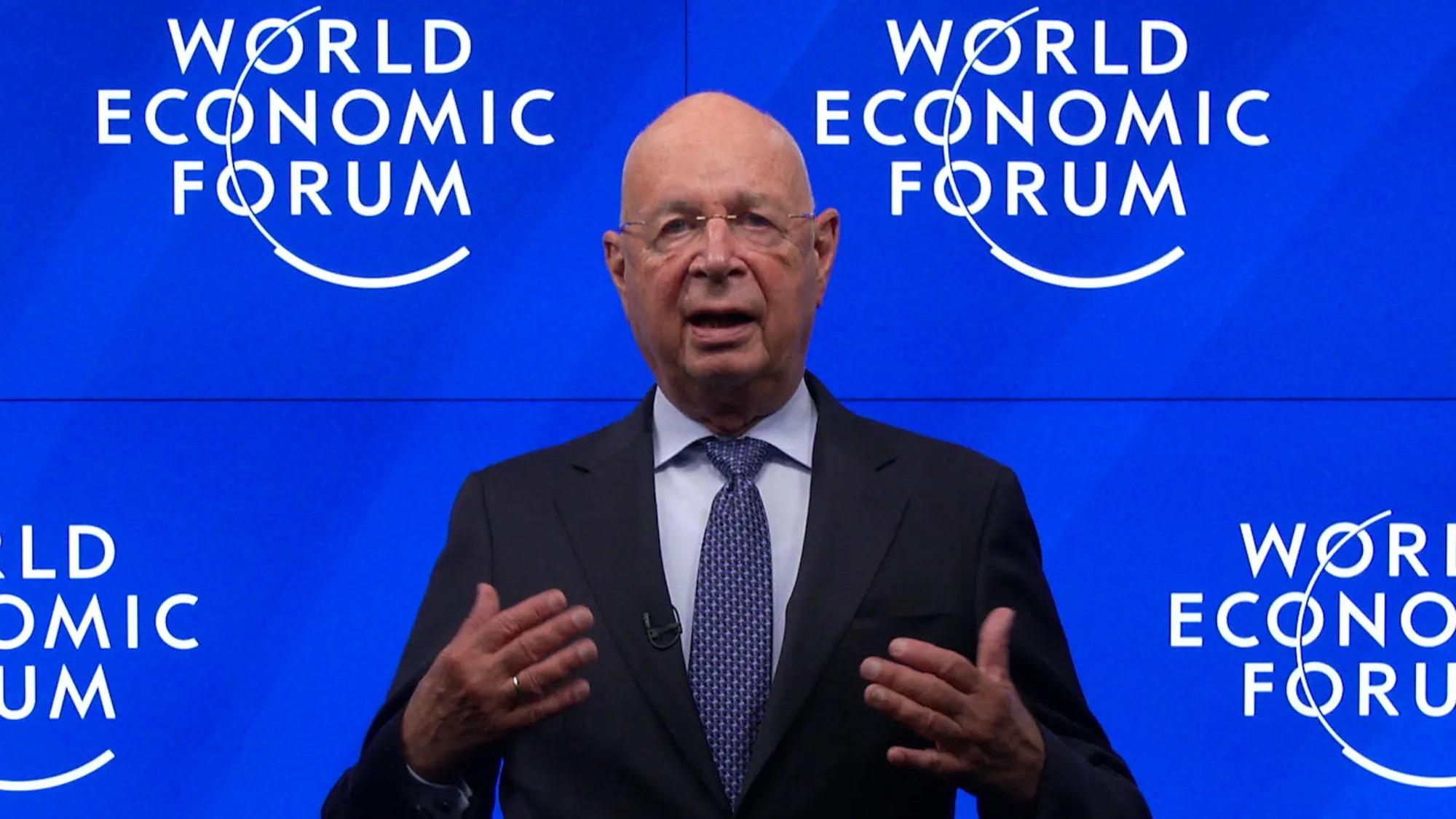The Biden administration officially ends the Covid-19 public health emergency today. Some of the last national-level Covid policies, such as vaccine requirements for federal workers and contractors as well as for foreign air travelers to the US, are on their way out. It’s a belated recognition that most Americans have learned to live with Covid.
Yet some of the figures associated with the most heavy-handed Covid policies have already tried rewriting history. Anthony Fauci recently abjured responsibility for Covid lockdowns, claiming merely to be downstream of the CDC. “Show me a school that I shut down and show me a factory that I shut down,” he said. “Never. I never did.” But “I Represent Science” Fauci forgets the power of his pronouncements — as well as his October 2020 statement that “I recommended to the president that we shut the country down.”
Likewise, in recent congressional testimony, American Federation of Teachers’ president Randi Weingarten denied that she “wanted to keep schools closed.” But the AFT coordinated with the Biden administration on guidance that discouraged full school reopening. Even outgoing Chicago mayor Lori Lightfoot has criticized Weingarten’s attempted revisionism.
It’s true that many Covid decisions were made locally. Indeed, looking there helps identify some of the real culprits behind lockdown mania. And highlighting those who resisted that mania casts the culprits in even starker relief.
Start in Pennsylvania, where a second location of 10X Fitness opened in Scranton in January 2020. When Governor Tom Wolf ordered “nonessential businesses” to close on March 19, 2020, 10X initially complied. But as the lockdowns dragged on, co-owner Danny Cronauer began to wonder why his business wasn’t considered essential. “I can get my haircut and get a six pack, but I can’t go to the gym?” Cronauer said. “There’s a problem here.” So on May 11, 10X reopened in defiance of lockdowns — for free. Patrons, one of whom drove from more than an hour away, were “delighted”overjoyed,” Cronauer says. He believed reopening would produce a kind of domino effect. Unfortunately, fear kept other businesses in line, and 10X was punished for its impropriety and forced to close again. But after Memorial Day weekend, it reopened for good, a testament to the idea that, even during a pandemic, health meant more than just Covid cases.
The government of Pennsylvania made other irrational decisions during that period. The primary state-level authority enforcing Wolf’s statewide lockdown measures was health secretary Rachel (formerly Richard) Levine, now in the Biden administration. The government mandated that patients with Covid be readmitted to nursing homes. By February 2021, Pennsylvania had become the most populous of the states where nursing home deaths accounted for half or more of total Covid deaths, according to the Associated Press. That misstep would be bad enough. But Levine’s own mother was conveniently exempted from the policy’s consequences, having been withdrawn, by Levine, from a nursing home and placed in a hotel. You don’t need the benefit of hindsight to distinguish between hero and villain in Pennsylvania.
The lines were also clear in Michigan. A few weeks into that state’s lockdowns, a group of pastors sought to re-establish their freedom to conduct in-person religious services. On May 6, 2020, with the help of the Great Lakes Justice Center, they filed suit against Democratic governor Gretchen Whitmer. They claimed that, though her lockdown executive order would not punish “a place of religious worship” or “its owner” for allowing “religious worship at such a place,” it guaranteed no such treatment to “individuals attending a place of worship as clergy or congregants.” Chuck Vitzum, a pastor for twenty-eight years at Whole Life Church in Sturgis, Michigan, believed this treatment reflected the state’s “undervaluation” of religion. “We saw ourselves as essential,” he said. “[Whitmer] did not, at that point, see us as essential.” Fortunately, just filing the suit got Whitmer to alter her order in churches’ favor. So they returned to in-person services — to their congregations’ delight. “There is that human need to be with each other, to be in fellowship,” Vitzum said. “When we opened it back up after the second week, they were just so grateful to be back together.”
Whitmer rose to national prominence in large part on the back of her supposed Covid competence. Yet even she now looks back on parts of her record with embarrassment. “Some of those policies I look back and think, you know, well, maybe it was a little more than we needed to do,” Whitmer said in March. When someone like that admits fault, believe her — and credit those who stuck to their beliefs all along.
In neighboring Wisconsin, there was a similar struggle to hold to higher values in a difficult situation. The Wisconsin Institute for Law and Liberty, a legal advocacy group, sought to prevent emergency powers from damaging the rule of law. In Wisconsin, the governor can declare an emergency for sixty days. After that, he must go to the legislature for approval. Governor Tony Evers took the first step, early in the pandemic. But when he did it again, unilaterally, in July 2020, WILL took action. “We really did care about establishing a precedent that the governor could declare emergencies in series and rule by decree,” said Rick Esenberg, WILL’s founder, president and general counsel. “That didn’t seem right to us.” So WILL sued, getting a favorable ruling from the Wisconsin supreme court that invalidated Evers’s subsequent emergency declarations. For WILL, it was also a procedural victory. “The argument that we made is that it’s when people are scared to death and they’re susceptible to acting rashly, following the rule of law is what’s important,” Esenberg said.
WILL was not against fighting the disease, Esenberg said. The organization believed the law provided “protection against the government making mistakes, but also against the excessive concentration of power and all the things you read in the Federalist Papers.” And it sought “broader public participation” in public health decisions, as well as to limit public health officials to their role of bringing “a certain type of expertise to bear on a certain problem” that is then applied as the laws stipulate. Maintaining the ordinary operation of government in an extraordinary situation was another victory for the forces of Covid sanity.
As we leave the Covid public health emergency behind, many of us will forget the worst abuses that happened during it, which to some extent might be for the best. But we shouldn’t forget who comported themselves well — and who earned our lasting distrust.



